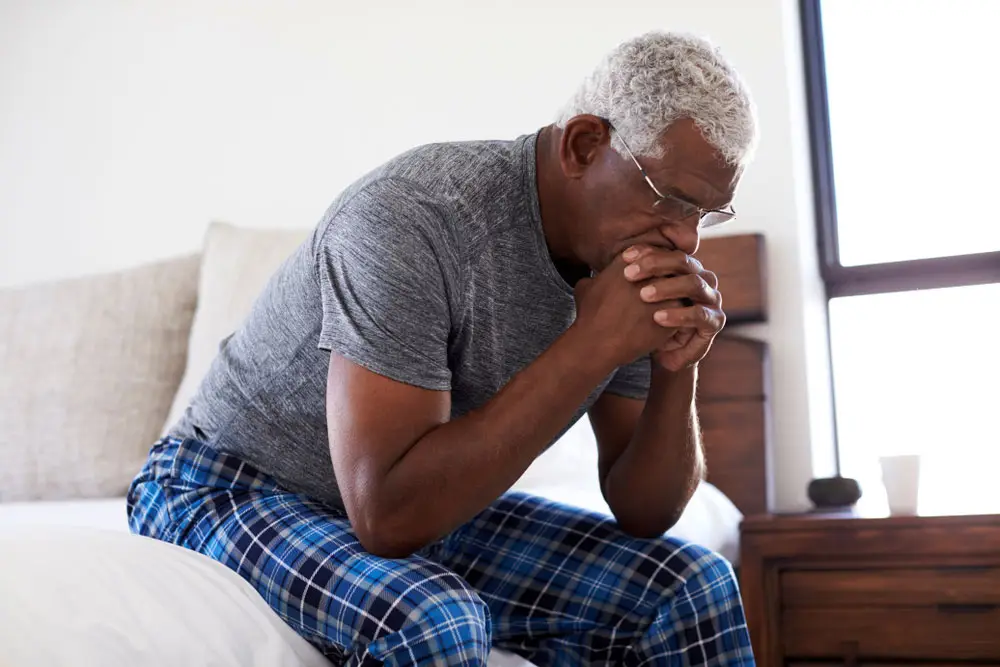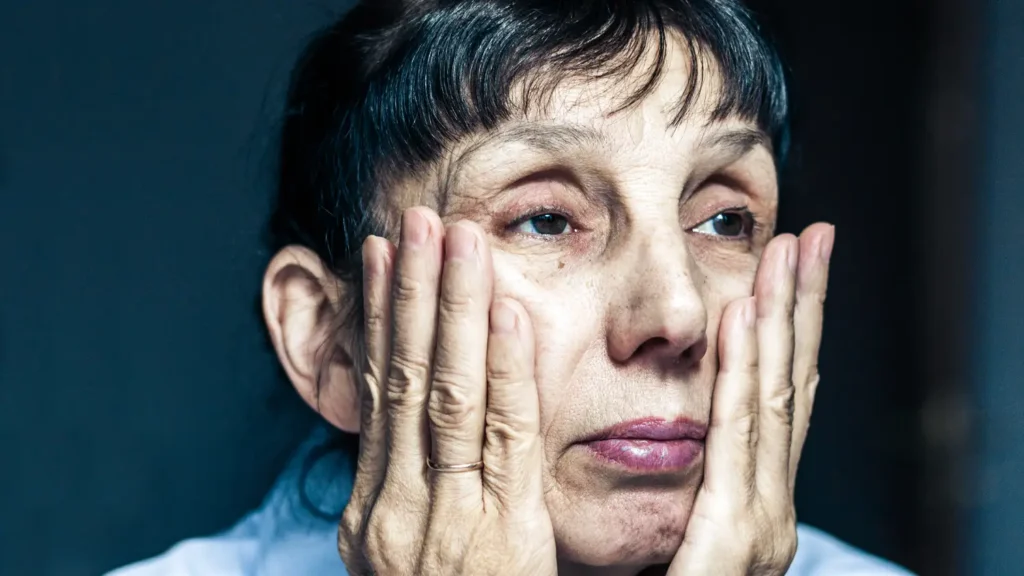Feeling down or a bit out of sorts these days? Maybe you’ve noticed it’s getting tougher to enjoy your usual morning coffee or chat with the neighbors. It’s frustrating, isn’t it? You might think it’s just part of getting older, but it doesn’t have to be.
Depression isn’t just a young person’s issue; it touches many lives, including those in later years. But here’s some good news: it’s entirely manageable.
In this blog, we’ll walk through how to spot the signs of depression in older people, understand what might be causing these feelings, and explore ways to lighten that emotional load. Whether it’s you or someone you care about, this blog will help you. So, stick with us and learn how to handle these emotions in the golden years.
Contents
- 1 Common Signs of Depression in the Elderly
- 2 Are You Experiencing Depression? Take Our Free Online Test
- 3 What is the Most Common Cause of Depression in Older Adults?
- 4 Effective Treatment Options for Elderly Depression
- 5 Lifestyle Adjustments to Manage Depression in the Elderly
- 6 Get Free Help For Depression
Common Signs of Depression in the Elderly
Depression can sometimes be tricky to spot, especially in older adults, as its symptoms often mimic those of other illnesses or are mistaken for normal age-related changes. But here are some signs that may indicate depression in elderly individuals:
- Withdrawal from Social Activities: A sudden lack of interest in socializing, which might include skipping regular meetups, not attending family gatherings, or avoiding conversations with friends.
- Changes in Sleep Patterns: This could be trouble falling asleep, waking up frequently during the night, or sleeping more than usual.
- Decreased Energy or Fatigue: Feeling unusually tired or experiencing a significant drop in energy levels without a clear physical reason.
- Unexplained Aches and Pains: Complaints of new or worsening physical symptoms such as headaches, back pain, aching muscles, or stomach pain that don’t seem to have a direct cause.
- Loss of Appetite or Weight Changes: Significant weight loss or a decrease in appetite that isn’t related to a medical condition.
- Neglecting Personal Care: Skipping regular personal hygiene routines or showing indifference towards personal appearance.
- Irritability or Agitation: Increased restlessness, irritability, or having a low tolerance for minor annoyances.
- Feelings of Worthlessness or Hopelessness: Expressions of unworthiness or ongoing sadness that don’t seem to go away.
- Cognitive Impairments: Difficulty concentrating, remembering details, or making decisions that are unusual for the person’s usual capabilities.
If you or someone you know is showing these symptoms, it might be time to seek help.
Are You Experiencing Depression? Take Our Free Online Test
If you’re unsure whether what you’re feeling might be signs of depression, taking our free online test can provide some clarity. Once you finish, you’ll receive immediate feedback based on your responses that can help indicate whether you might be experiencing symptoms of depression.
Click the button below to start the test now.
What is the Most Common Cause of Depression in Older Adults?
Depression in older adults often stems from social isolation and loneliness. Life changes that commonly occur with aging—like losing loved ones, facing health challenges, or retiring—can cut down social interactions and increase feelings of loneliness, which are major contributors to depression.
Understanding this can help in taking proactive steps to maintain connections and seek support, potentially reducing the risk of depression.
Effective Treatment Options for Elderly Depression

Depression in older adults is treatable, and there are several effective methods to manage and overcome the condition. Here’s what can help:
- Medication: When treating depression in older adults, medication can be a vital part of the therapy plan. However, due to potential side effects and interactions with other medications, the choice and management of these drugs must be handled with care. Here are some commonly prescribed antidepressants for elderly patients:
- Selective Serotonin Reuptake Inhibitors (SSRIs) like sertraline (Zoloft), citalopram (Celexa), and escitalopram (Lexapro).
- Serotonin-Norepinephrine Reuptake Inhibitors (SNRIs) such as venlafaxine (Effexor) and duloxetine (Cymbalta).
- Tricyclic Antidepressants (TCAs), while effective, these drugs, such as amitriptyline and nortriptyline, are generally used as a secondary option due to their higher risk of side effects.
- Medications like bupropion (Wellbutrin) and mirtazapine (Remeron) are used when other treatments aren’t effective.
- Therapy: Psychological therapies like cognitive-behavioral therapy (CBT) are highly effective. CBT helps individuals recognize and change negative thought patterns and behaviors that contribute to depression.
- Lifestyle Changes: Simple adjustments in daily living can make a big difference.
- Integrated Care: Combining different approaches, like medication with therapy and lifestyle modifications, often works best. Regular check-ups with healthcare providers ensure that treatment plans are effective and adjust as needed.
Understanding and utilizing these treatment options can significantly improve the quality of life for older adults suffering from depression.
Lifestyle Adjustments to Manage Depression in the Elderly

Managing depression in older people isn’t just about medication and therapy; lifestyle changes can also play a significant role in improving mood and overall well-being. Here are some practical and realistic adjustments that can help:
- Regular Physical Activity: Gentle exercises like walking, tai chi, or chair yoga can significantly boost mood and are feasible for most fitness levels. Aim for at least 30 minutes of activity most days of the week.
- Engage Socially: Participate in community activities, join clubs or groups that align with your interests, or regularly schedule calls or visits with friends and family.
- Establish a Daily Routine: A consistent daily schedule helps reduce stress by providing structure and predictability. Try to wake up, eat meals, and go to bed at the same time each day.
- Pursue Hobbies: Engaging in hobbies and activities that bring joy can provide a sense of accomplishment and pleasure. Whether it’s gardening, knitting, painting, or playing music, hobbies can offer therapeutic benefits.
- Mindfulness and Relaxation: Practices such as meditation, deep breathing exercises, or even listening to soothing music can help manage stress and anxiety, which are often associated with depression.
- Volunteering: Helping others can improve your mood and provide a sense of purpose. Many organizations welcome the wisdom and experience that older adults bring.
- Nutrition: Eating a balanced diet rich in fruits, vegetables, lean proteins, and whole grains can impact overall health positively, including mood regulation. Omega-3 fatty acids, found in fish like salmon and trout, are particularly beneficial for brain health.
These lifestyle adjustments can help older adults feel more in control of their health and improve their mood. Remember! Small, consistent changes can make a substantial difference in managing symptoms of depression.
Get Free Help For Depression
If the weight of depression feels too heavy and it’s overwhelming your daily life, remember, you don’t have to face this alone. My Mind Mantra is here to provide the support you need. We offer free, confidential help with listeners who are ready to hear you out—without judgment.
Take Action Now: Simply click the link, download our app, and tap on “Talk with a Listener.” It’s free, easy, and your first step toward feeling heard and supported.
For those who may need more professional support, Mantra Care is at your service. With over 10,000 people helped, our experienced therapists provide a safe, confidential space to talk about your feelings and help you manage and overcome depression.
Ready to make a change? Click here to book your trial online therapy session for depression today. We’re here to help you regain control and move toward a happier, healthier life.
